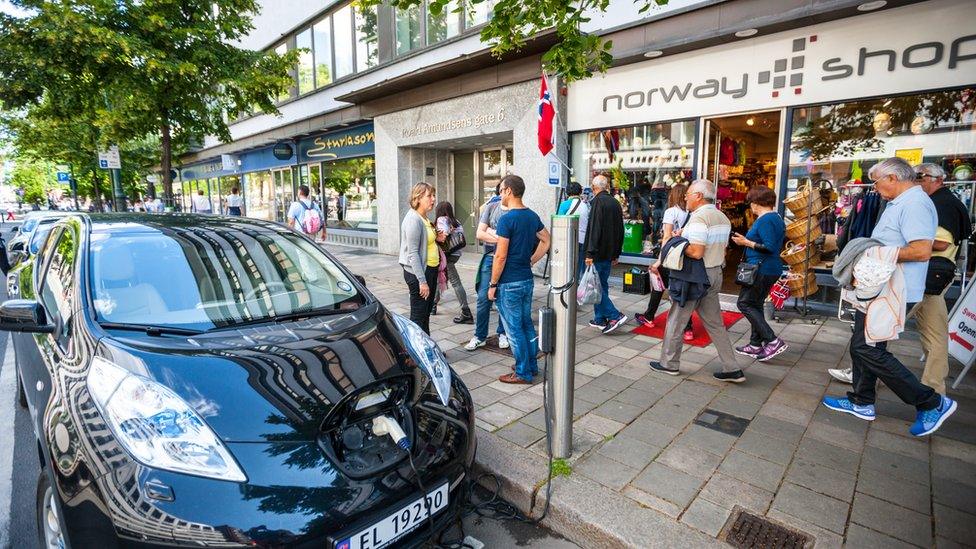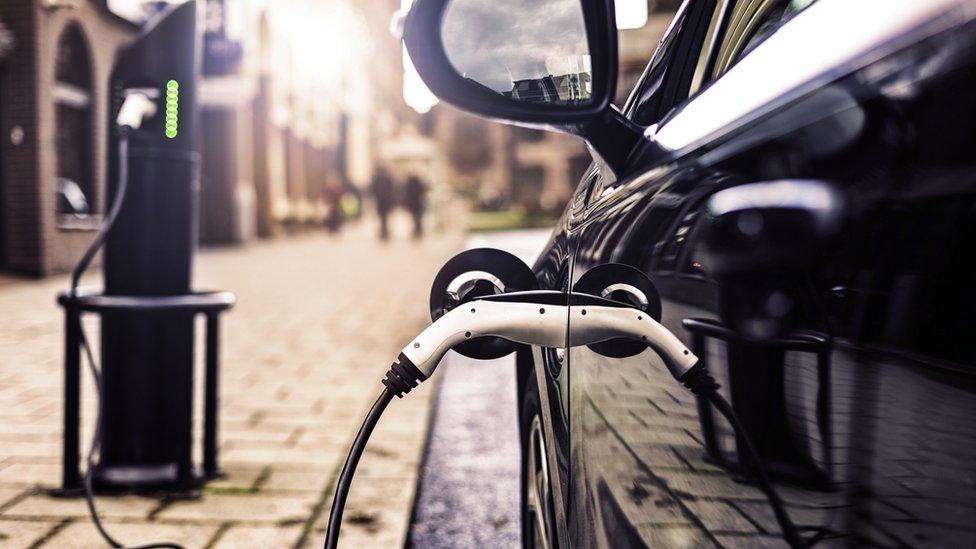Car dealer tactics stall electric car sales
- Published
- comments

While electric cars are big sellers in Norway, the attitudes of dealers across Scandinavia is hampering sales says the study
"Dismissive" car dealers are a major barrier to boosting sales of electric vehicles (EVs) according to a new study.
Researchers, who posed as car shoppers in Scandinavia and Iceland found that sales personnel strongly pushed petrol and diesel powered cars.
Around 77% of dealerships that sold EV brands didn't discuss their existence with the potential customers.
Government signals are a key reason for these attitudes say the authors.
In this study, the researchers visited 126 car dealerships across 15 cities in Denmark, Sweden, Norway, Finland and Iceland. The team also interviewed over 250 industry experts across the region. Of the 126 dealers visited, only 8.8% of the encounters that the shopper has left them preferring an EV option over a petrol or diesel car.
Excluding Norway, a country where nearly a third of new car sales this year are expected to be electric, the proportion of shoppers opting for EVs dropped to 2.9%.
Most potential customers would remain totally ignorant of EV options in the vast majority of showrooms, especially where dealers sold EV brands.

Pulling the plug
According to the study these are the four most common ways in which dealers steer customers away from EVs:
Dismissive of EVs - "the economics of fuel efficiency doesn't make sense..."
Misinforming the customer - "it only goes 80km.."
Neglecting to mention EVs - "you can only get this in diesel or petrol.."
Depicting EVs as inferior - "it will ruin you financially..."

The authors say that the dealers perceived EVs as less profitable, they lacked technical knowledge and believed that EVs took longer to sell.
"Policy and signalling from the government and the industry are reflected in the marketplace, they are making EVs a less attractive option to sell for the sales personnel and for consumers to buy," lead author Gerardo Zarazua de Rubens told BBC News.
As an example of the mixed messages being sent, the authors say that Denmark has introduced a tax on electric cars while at the same time reducing taxes on other premium cars.
However in Finland, a country with colder winters and spread out population centres that should be more difficult for electric cars, dealers were more supportive of EVs.

Car dealers are creating huge barriers to sales of electric vehicles
"Finland is a country that should be less attractive to EVs, but we found that dealers were still more willing to support sales of electric cars compared to Danish dealers," said Gerardo Zarazua de Rubens.
"The government said they want EVs in the country and set a target of 250,000 by 2030 which resonated downstream to the marketplace, whereas in Denmark you find the opposite - the government is sending other types of signals."
With carbon from the transport sector responsible for one quarter of energy-related global greenhouse gas emissions, governments are keen to see a rapid uptake of EVs.
Many, including the UK, are signalling that the internal combustion engine will be phased out over the next 20-30 years. Despite the objections from sales personnel in his study Gerardo Zarazua de Rubens, believes it will happen much more quickly.
"EVs will come faster than most people think. Replacing the entire fleet will take a long time as we can't just get rid of all the cars but I think EVs will dominate new sales in the next decade, and not in 20 years."
The study has been published in the journal, external Nature Energy.